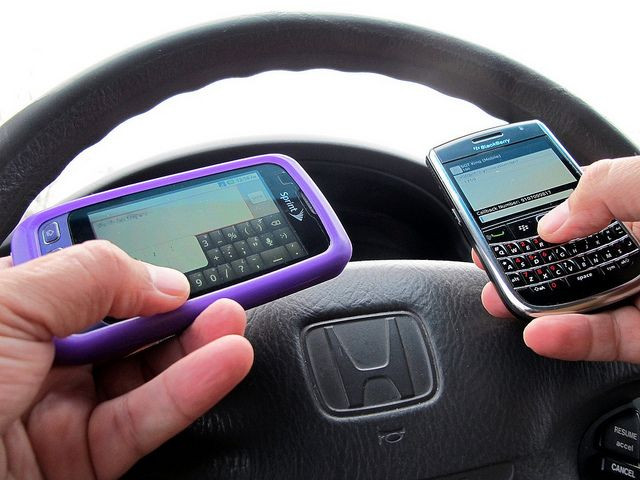Cell Phone Notifications: How Even Getting A Short Text Can Distract You Completely

Everyone has a cell phone: kids, parents, grandparents, low-income people, high-income people, everyone. You might even be reading this article on your cell phone. Thanks for that, I appreciate it — hey, what, don’t stop reading now. Don’t answer that text or check that incoming email. Focus. Good, I’m glad you’re back. Wait, wait, another text? Come on, seriously? You can’t just finish reading this short article on how cell phones are impairing your ability to focus on a given task, namely reading my words?
According to a new study done by Florida State University, just receiving a notification from your phone, be it a text, email, call, or anything else, takes your focus completely off the task you were currently doing, and not just for that specific moment. Checking a notification on your phone can lead you down a rabbit hole, like checking social media, updating your email inbox, or just simply daydreaming.
"Although these notifications are generally short in duration, they can prompt task-irrelevant thoughts, or mind-wandering, which has been shown to damage task performance," the researchers wrote in the paper. "Cellular phone notifications alone significantly disrupt performance on an attention-demanding task, even when participants do not directly interact with a mobile device during the task."
It is definitely a well-known fact that cell phones are the ultimate distraction. That’s because we have a limited capacity to focus on multiple tasks at once. Our brains just can’t handle all the information that doing two tasks simultaneously throws at us.
"Even a slight distraction can have severe, potentially life-threatening effects if that distraction occurs at the wrong time," said Cary Stothart, psychology doctoral student and lead author of the study. "When driving, it's impossible to know when 'the wrong time' will occur. Our results suggest that it is safest for people to mute or turn off their phones and put them out of sight while driving."
For the study, researchers gave participants a simple computer-based task that demanded their undivided attention. After the participants completed the task, interruption free, they were then put into one of three groups: call, text, or no notification. As one would expect, the research showed that those who received notifications during the test fared worse than those who received no notifications at all. They found that the chance of making a mistake was three times greater for those who were receiving a notification. But the ones who suffered the most were those who received a phone call instead of a text.
All of this information lined up with what other studies have shown about cell phone distractions. Although the research was done in a controlled environment in front of a computer, the researchers stated that the information they gathered also proved that distracted driving is a real and dangerous thing.
Source: Cary Stothart, Ainsley Mitchum, Courtney Yehnert. The Attentional Cost of Receiving a Cell Phone Notification. Journal of Experimental Psychology: Human Perception and Performance. 2015.



























